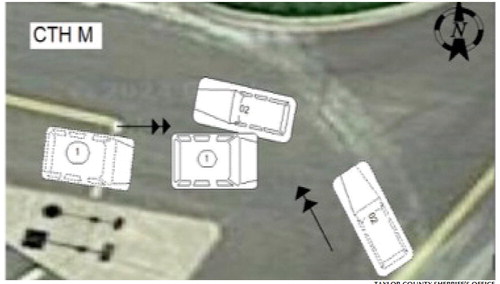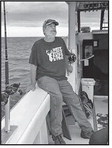Beware of return of sweepstakes scams
Scammers have once again reared their head in Taylor County.
Area residents are warned that scammers are calling people claiming to be from Publisher’s Clearing House (PCH). This is just the latest version of a scam that has hit unsuspecting people for decades.
PCH has marketed merchandise and magazine subscriptions to American households since 1967 and has given away more than half a billion dollars since it was founded.
The Publishers Clearing House scam is a type of sweepstakes scam in which fraudsters impersonate company representatives and claim you’ve won a prize. However, the whole thing is a setup to get you to either send them money (or gift cards) or disclose enough sensitive information to enable them to steal your identity and empty your bank account.
Here’s an example of how a typical PCH scam plays out:
• Scammers target victims with phone calls, emails, or text messages. You receive a message or letter claiming that you’ve won a valuable prize. In most cases, the prize is a large cash payment along with a new car, vacation, or other valuable high-ticket item.
• You’re then told that to claim the prize, you must first pay taxes, fees, or shipping costs. Scammers often demand payment in gift cards from popular stores (such as Amazon or eBay). This allows them to disappear with victims’ money without leaving a paper trail.
• They’ll ask you to provide the PIN (found on the back of the gift card) over the phone or via email. This gives fraudsters instant access to the funds on the cards.
• After you pay, the scammer disappears. After you’ve given the scammers what they want, they hang up. You lose the money you sent to them and never receive your prize.
In some versions of this increasingly popular scam, victims are asked to send their Social Security number (SSN), bank account details, or other personal data — giving scammers everything needed to steal their victims’ identities.
The key for people to know is that that Publishers Clearing House never requires winners to pay.
If you’re a legitimate winner, you won’t be subject to fees or charges before you can claim your prize. If you’re asked to pay anything to claim your winnings, you’re dealing with a PCH scam.
Even if you’re not asked to pay upfront, there are other red flags to look out for when dealing with a fake PCH award.
Here’s how you can tell if you’re being targeted by a sweepstakes scam:
• You receive a notice about a prize that is over $10,000 in value. Publishers Clearing House always awards large cash prizes in person with their famous Prize Patrol. They do not give winners any advance warning before the Prize Patrol shows up. Smaller prizes are sent by certified mail.
Example of a fake PCH sweepstakes letter. Source: KX News
• There are “processing fees” or other charges. Sweepstakes winners should not have to pay anything to claim prizes. If you’re asked to pay or send gift cards, it’s a scam.
• You’re asked to wire back some of the money. Some scammers send fake checks in the mail and ask victims to wire back a portion of the money. When the check bounces, you have to pay the difference.
• You’re asked to provide personal or financial data to claim your prize. Publishers Clearing House will never ask for bank account information, handling fees, or gift card payments in order for you to receive a prize.
• You have to contact someone before cashing the check. If a check is real, there is no need to talk to anyone before cashing it. Scammers use this tactic to get you on the phone and demand payment or sensitive data from you.
• The contact information is wrong. Verify that the phone number provided is the same as the one listed on PCH.com. If you’re unsure, you can always call PCH customer service directly at 1-800-459-4724 (or use other contact information found on the PCH website) and ask if you’ve really won.
Since older people are often the targets of scams, area residents are encouraged to check with older relatives and friends to caution them about the PCH scam and others that are going through the area.




